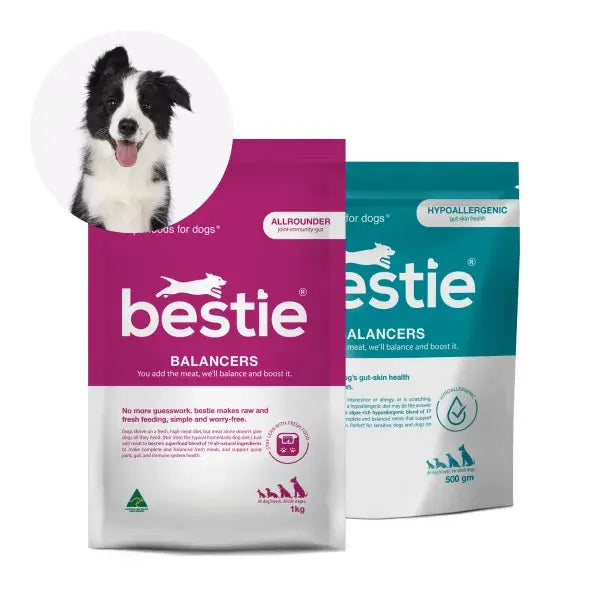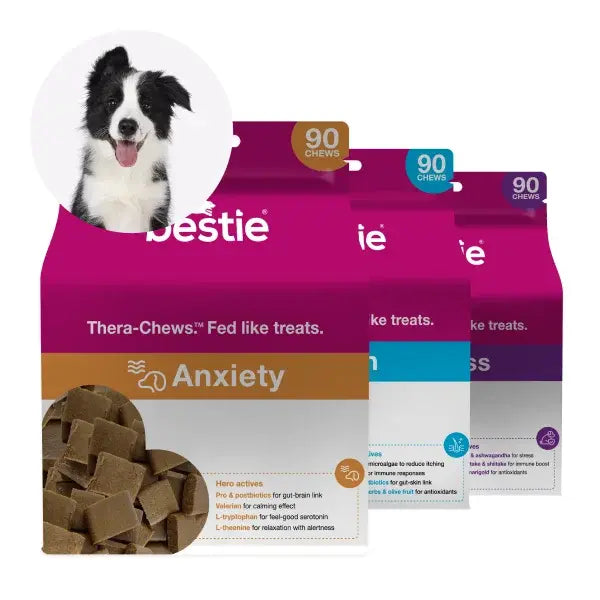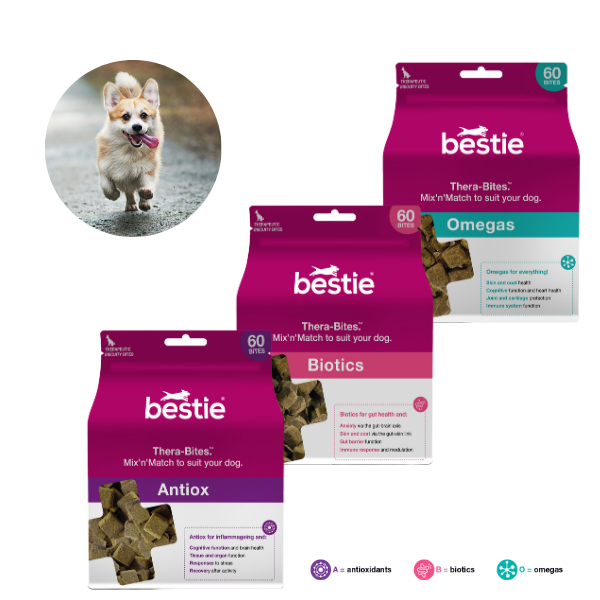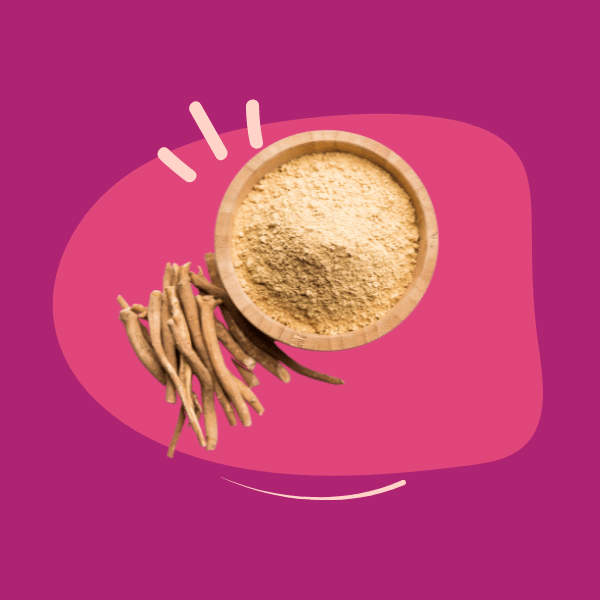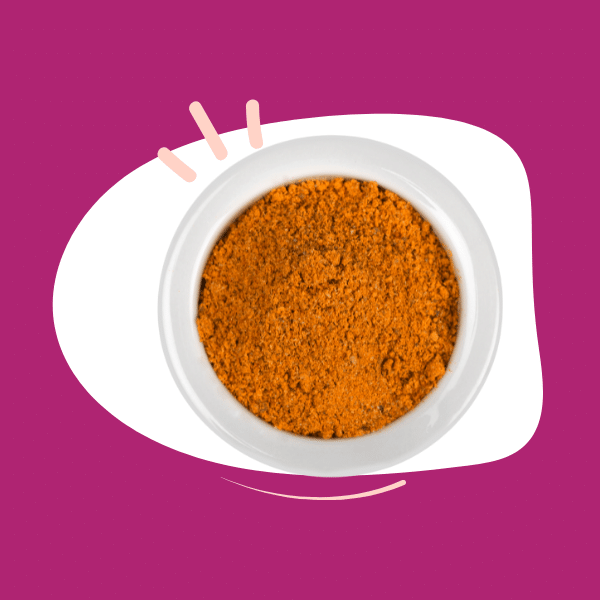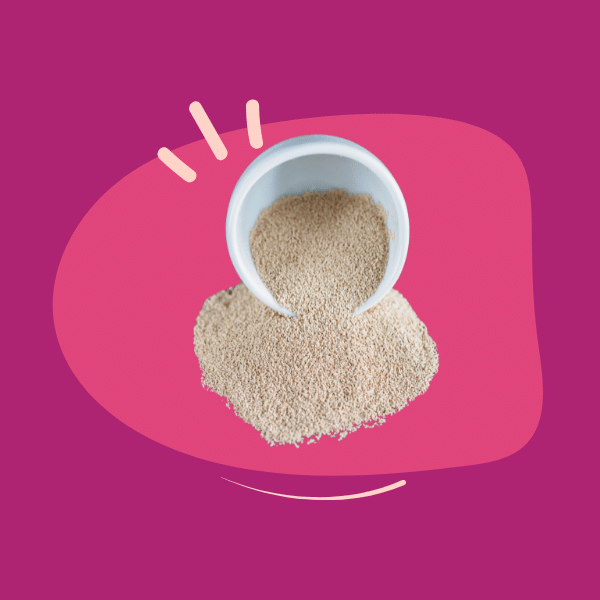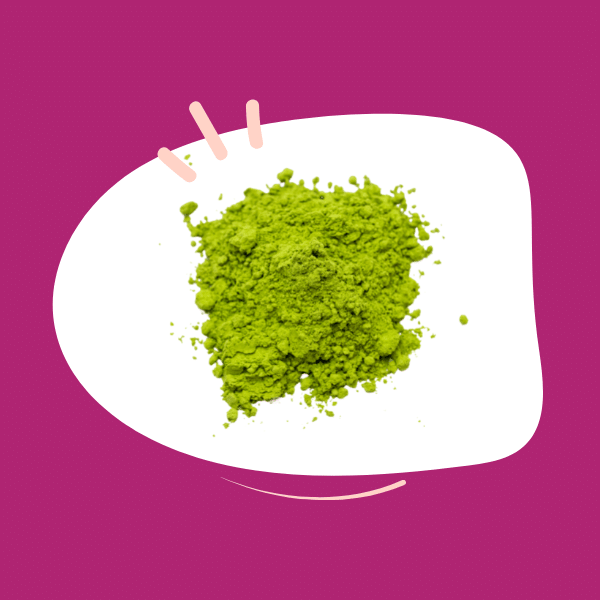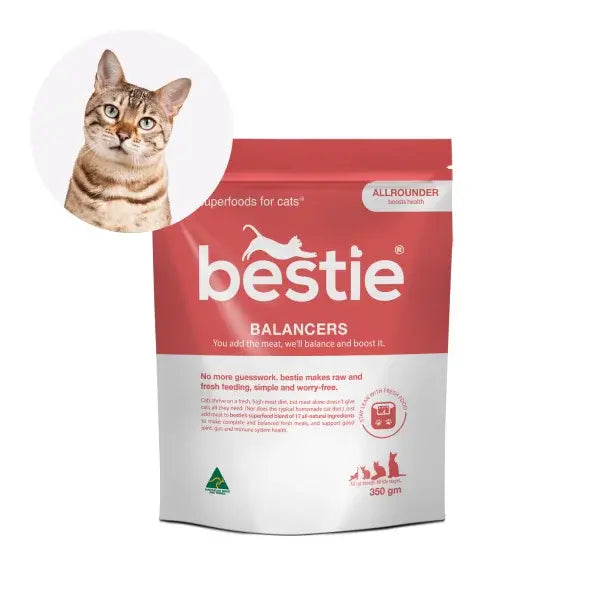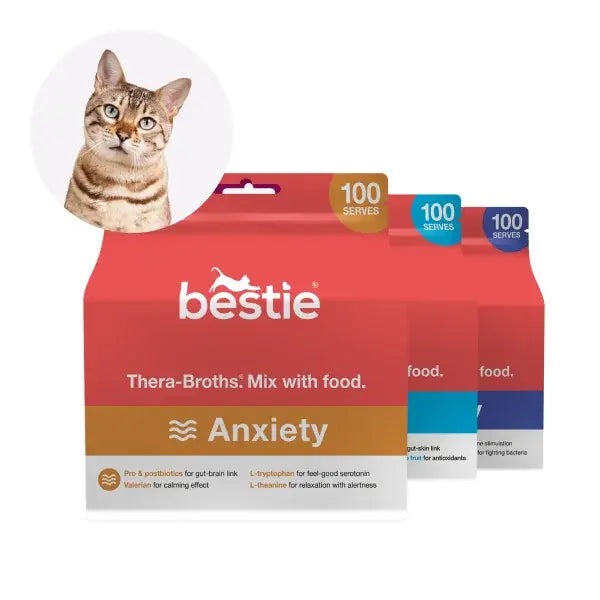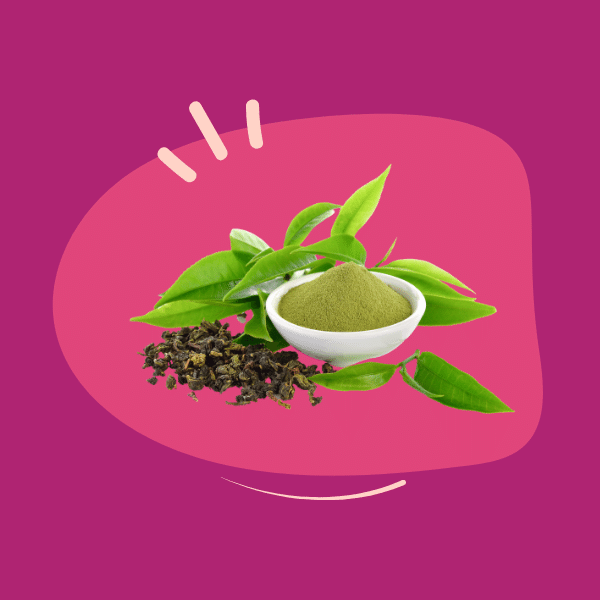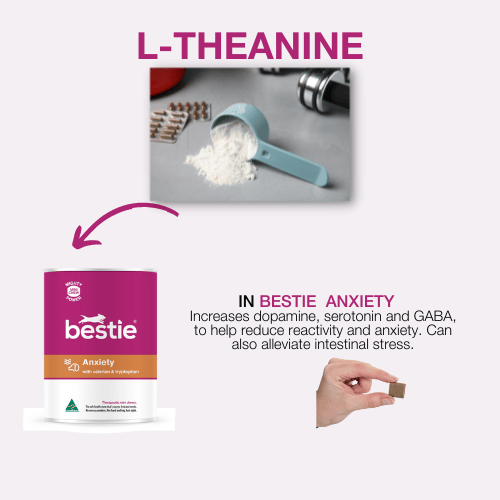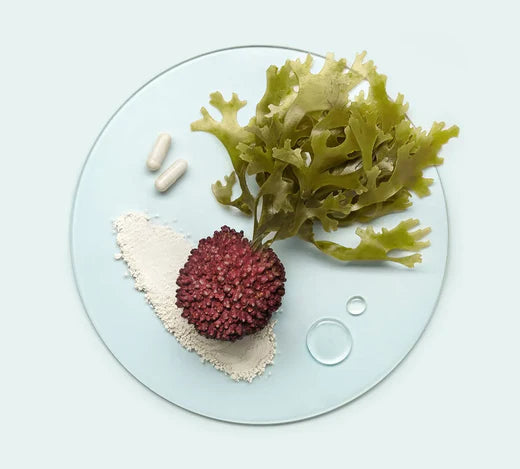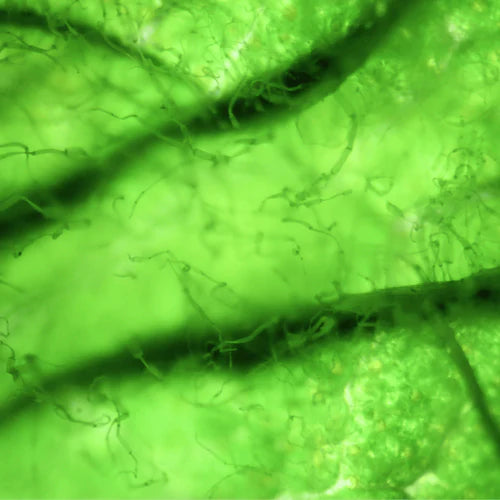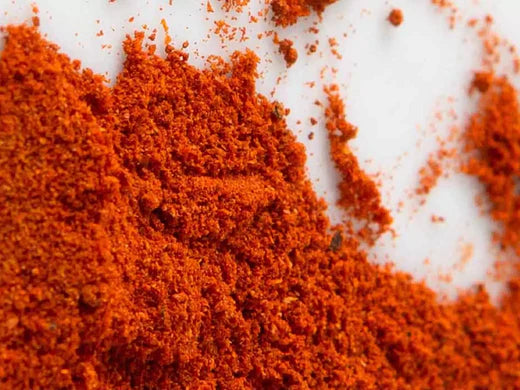L-Theanine is a type of amino acid that is the main component of green tea leaves (Camellia sinensis). It’s known for its relaxing effects on both humans and animals.
That’s also why L-theanine is one of the major ingredients of The Bestie Anxiety formulated to address anxious behaviour in pets. It works alongside other ingredients like b-complex powerhouse nutritional yeast, linden powder, pomegranate powder, valerian powder, tryptophan, and hawthorn powder.
L-theanine is the main bioavailable form present in tea (1–2% of total leaf weight) and represents around 50% of total free amino acids in tea.1 Since its beneficial effects were discovered, L-theanine is now being extracted from tea to be used as a supplement and food ingredient for anxiety disorders in humans or animals.
Dietary intake can increase gamma aminobutyric acid (GABA) concentrations, serotonin, and dopamine levels in the brain. These hormones are responsible for stabilizing mood and creating feelings of happiness and well-being.
How does L-theanine work?
To understand this question, we need to know a little about glutamate and GABA. Glutamate and gamma-aminobutyric acid (GABA) are the major neurotransmitters in the brain. GABA is synthesised from glutamate by the enzyme L-glutamic acid decarboxylase. L-theanine is similar in structure to glutamate. 6
Inhibitory GABA and excitatory glutamate work together to control many processes, including the brain’s overall level of excitation. A balanced interaction is required to maintain the physiological homeostasis, while prolonged imbalance can lead to disease.
A study involving mice brains reported an increase in the concentration of GABA following administration of L-theanine. GABA acts by decreasing reactivity and slowing down of the transmission of nerve impulses, both of which can contribute to a decreased state of anxiety in humans and animals.
While the role of L-theanine in brain function has not been fully established, experts believe that the increase in GABA concentration can explain L-theanine’s counteracting activity against caffeine2 and its ability to modulate the nervous system response that is involved in pleasure, mood, stress, and reward.
L-theanine can also increase dopamine and serotonin levels in the brain. These are important neurotransmitters that play important roles in mood, anxiety, cognitive functions, and behaviours in mammals. Supplementation of L-theanine in dogs resulted in a significant reduction in the behaviours triggered by fear, such as flight and avoidance, hyper-vigilance, and trembling.3
Why is l-theanine beneficial for some cats and dogs?
L-theanine boosts behavioural therapy
The gold standard in addressing problem behaviours in pets is behavioural therapy. It is geared towards helping pet owners understand their pet’s behaviour so they will be able to adapt or change their behaviour or their pet’s immediate environment to reduce stress.
But often the best results are achieved when behavioural therapy is coupled with pheromones, L-tryptophan, casein, supplements, or veterinary-prescribed psychoactive drugs that work to decrease anxiety in cats and dogs. Early socialization and training are also key to resolving anxiety issues in pets.
One of the most effective natural supplements that can be incorporated in the diets of cats and dogs suffering from anxiety disorders is L-theanine.
L-theanine promotes a focused mental state (say 'om'😏)
L-theanine has been shown to cause an increase in the brain’s alpha waves, such as what occurs during meditation -- a calm and focused mind. This can help induce a feeling of calmness and a state of relaxation without the tiredness and drowsiness associated with anxiety medications.
L-theanine and noise phobia
A 2010 study determined the efficacy of L-theanine in dogs with specific noise phobia. One group only received behavioural therapy while the second group had behavioural therapy coupled with L-theanine supplementation.
Results showed a significant reduction in the intensity of phobia-associated symptoms in both groups. But the group that received both behavioural therapy and L-theanine exhibited a decrease in certain specific behaviours such as drooling, panting, yawning, lip-licking, vocalizing, compulsive behaviours, and attention-seeking behaviours.4
L-theanine ease stress-related behaviours
Stress-related behaviours in cats and dogs can be triggered by a variety of factors. An unpleasant experience at any time in their life, unsuitable living conditions, pain, illness, and even bad relationships with their owners or other animals are important stressors that can pave the way for the development of undesirable behaviours.
L-theanine supplemented diets have been shown to alleviate anxiety triggered by stressful situations such as fireworks, thunderstorms, house guests, car rides, etc.
Supplementation of cats with L-theanine has been demonstrated in one study to alleviate manifestations of stress in cats under field conditions. The cats selected in the study exhibited signs associated with stress or fear such as inappropriate elimination, fear-induced aggression, and other forms of physical or functional manifestations of stress.
For 30 days, the cats were given L-theanine twice a day. The researchers observed that all the stress-related signs were significantly improved compared to Day 0. The cats didn’t show any intolerance or side effects to L-theanine supplementation.5
L-theanine is regarded as safe and effective
L-theanine is regarded as safe for use in pets. In fact, many pet parents use it as a supplement for their pets instead of giving Xanax (alprazolam), a medication that is used to treat anxiety and panic disorders and has known side effects such as incoordination, sedation, diarrhoea, vomiting, gassiness, and an increase in appetite.
Results of L-theanine supplementation in cats and dogs usually can be noticed within two months. Like humans, pets tend to have a unique response to L-theanine. Some responses may be rapid while chronic behavioural issues may take more than three to four weeks before an improvement in the animal’s behaviour is noticeable.
The best results can be achieved when L-theanine supplementation is coupled with behaviour modification.
List of References:
- Juneja LR, Chu DC, Okubo T, Nagato Y, Yokogoshi H. L-theanine-a unique amino acid of green tea and its relaxation effect in humans. Trends Food Sci Technol. 1999;10:199–
- Kimura R, Murata T. Influence of alkylamides of glutamic acid and related compounds on the central nervous system. I central depressant effect of theanine. Chem Pharm Bull. 1971;19:1257–
- Lobprise, Heidi. Supplement Can Bolster Pets’ Anxiety Treatment. Veterinary Practice News. 05 January 2012. Date Accessed: January 25, 2022
- Michelazzi, Manuela & Berteselli, Greta & Minero, Michela & Cavallone, Elena. (2010). Effectiveness of L-theanine and behavioral therapy in the treatment of noise phobias in dogs. Journal of Veterinary Behavior-clinical Applications and Research - J VET BEHAV-CLIN APPL RES. 5. 34-35. 10.1016/j.jveb.2009.10.020.
- Dramard, V et al. Effect of l-theanine tablets in reducing stress-related emotional signs in cats: an open-label field study. Ir Vet J.2018 Oct 9;71:21. doi: 10.1186/s13620-018-0130-4. eCollection 2018.
- Hampe, C. S. , Mitoma, H., Manto, M., 2017, 'GABA and Glutamate: Their Transmitter Role in the CNS and Pancreatic Islets', in J. Samardzic (ed.), GABA And Glutamate - New Developments In Neurotransmission Research, IntechOpen, London. 10.5772/intechopen.70958.


